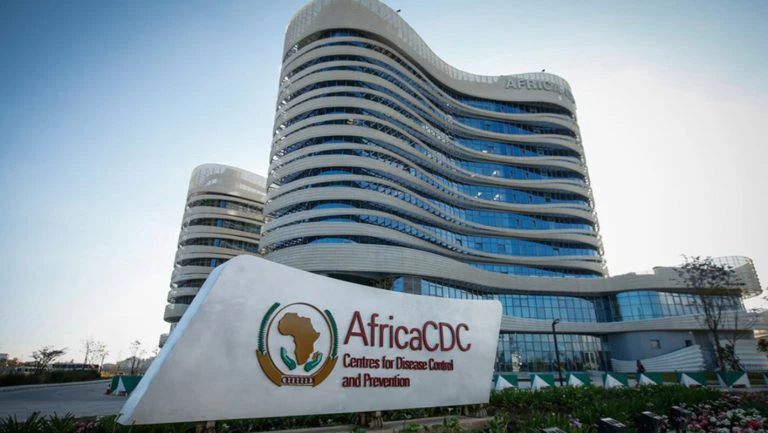China and South Korea Commit $4 Million to Africa CDC
The People’s Republic of China and South Korea have jointly pledged $4 million to the Africa Centres for Disease Control and Prevention (Africa CDC).
This commitment, announced on February 21, comes at a critical juncture as the continent grapples with a healthcare funding shortfall exacerbated by reduced U.S. aid under President Donald Trump’s administration.
The pledge, reported by Bloomberg, underscores a shifting global dynamic where Asian powers are stepping in to fill gaps left by traditional Western donors, offering a lifeline to Africa’s overburdened health systems.
The Africa CDC, established in 2017 by the African Union, has emerged as a cornerstone of the continent’s efforts to combat infectious diseases, strengthen health security, and respond to pandemics.
However, its ambitions have been hampered by inconsistent funding.
The United States, once a major contributor through initiatives like the President’s Emergency Plan for AIDS Relief (Pepfar), has scaled back support significantly.
Pepfar, which has invested over $110 billion globally in HIV/AIDS response since 2003, faces an uncertain future as the Trump administration has frozen USAID funds and withdrawn from the World Health Organization (WHO).
This retreat, detailed in a February 24, 2025, analysis by The Conversation, has triggered a cascading healthcare crisis across Africa, threatening progress on HIV, malaria, and tuberculosis programs.
Enter China and South Korea. Their $4 million infusion is more than a financial gesture—it’s a strategic intervention. For the Africa CDC, this funding will enhance disease surveillance, bolster laboratory networks, and improve emergency response capabilities.
The continent’s vast geography and diverse population of over 1.4 billion demand robust systems to track and contain outbreaks like Ebola, mpox, or future pandemics.
With this money, the agency can train more epidemiologists, deploy rapid-response teams, and upgrade diagnostic tools—critical steps to prevent localized health threats from spiraling into regional or global crises.
China’s involvement aligns with its broader Africa strategy, building on decades of infrastructure investment through the Belt and Road Initiative.
President Xi Jinping has framed this health funding as part of a “community with a shared future,” emphasizing solidarity over charity. South Korea, under President Yoon Suk Yeol, brings its own expertise in healthcare innovation, leveraging lessons from its successful COVID-19 response.
Together, their contributions signal a new era of South-South cooperation, reducing Africa’s reliance on Western aid models that often come with strings attached.
The impact of this funding extends beyond immediate health outcomes. By stabilizing Africa’s disease control framework, China and South Korea are indirectly safeguarding global health security—a priority in an interconnected world where pathogens respect no borders.
For African nations, it’s a chance to reclaim agency over their health priorities, free from the political volatility of U.S. policy swings. Critics, however, caution that such partnerships must avoid debt traps or geopolitical leverage, a concern given China’s track record.
As of March 2, 2025, this $4 million pledge is a modest but meaningful step. It won’t replace Pepfar’s billions overnight, but it buys time and builds capacity.
For Africa CDC, it’s a signal that new allies are ready to invest where others retreat—a lifeline amid uncertainty.

